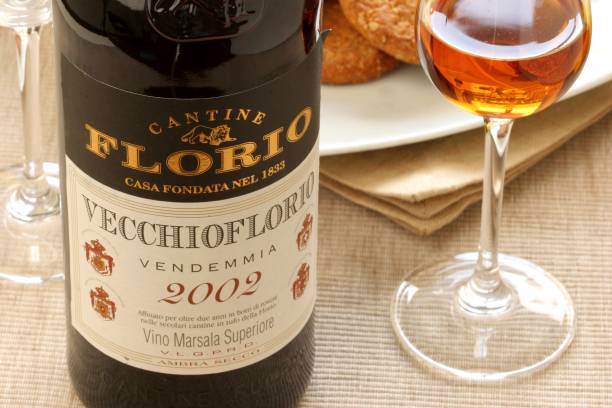The squeak of a cork. The scent of figs, iodine and wood. All keys to the past.

Fort Worth Texas, 1964
My Grandpa loves to take me cow-cow. Black giants stare as we walk across the field, and I laugh at the mouse bellies that swing below their behinds.
The grass is yellow and the cow patties are as hard as rocks. I kick them with my three-year-old foot and they don’t budge.
Up ahead, the old house touches the sky. We have to be careful because the porch is made of splinters. So many rooms! Most of them are filled to the ceilings with Grandpa’s National Geographics. He likes to come here and make sure the robbers haven’t taken them away in a truck. There are roses on the walls where my Momma used to sleep when she was a little girl. I pull at the corners where the paper sticks up and tear off a piece, but gosh darn it, Grandma will throw it away when we get home. “So dirty for little girls!” she will say. She doesn’t like the old house.
Grandma makes me supper in the kitchen of the new house. Her scrambled eggs are as soft as pudding today, and the butter on my plate tastes like Nilla wafers. I am eating dessert with a little salt and I hope that she makes it again.
“These are good, Grandma!”
My Momma and Grandma clap their hands and laugh. “She sure is a Charbonneau if she likes brains.”
I eat every bite and make a wish to grow up like them, so pretty with curlers in their hair.
It is dark now and frogs are jumping around on the patio like popcorn in a skillet. Grandpa takes me outside and points his finger at the stars.
“Do you see the cowboy up there? Do you see his belt and gun?”
Roy Rogers lights up the sky, just for me.
“Pow pow,” I shout and shoot the big dipper so he knows I want to marry him someday.
Grandpa wears a long dress to bed every night. We sleep in a wooden bed together and Grandma and Momma sleep down the hall. We never say our prayers, but he speaks words that I don’t understand to put me to sleep. My Momma tells me later that Greek helps to keep his mind sharp.
Poochie the mutt dog lives outside and licks my face every time she sees me. One morning I walk into the garage and find her lying in a box surrounded by squirming doggies with their eyes shut. I pick one up and she follows me inside the house. This is the only time that Grandma lets her dance in the kitchen and show off her baby.
The dining and living rooms are for big people, but today I sit at the table with lots of children wearing masks. They are shiny and make everybody look like kings or queens.
“Happy birthday, Rozanne!”
I don’t know these boys and girls, but now I have friends. My Momma brings out a white cake with roses, just like the wallpaper from the old house. I open a box and find some red sandals inside. Momma helps me strap them on and lightning strikes our eyes when Grandpa takes the picture.
Grandpa lies in our bed because he is sick. I stand in the corner of the room and watch Momma and Grandma holding his hands. His mouth makes sounds like root beer through a straw and I wish he would get better so we could drive to the drug store.
“He’s dead!” Momma says and begins to cry.
Grandma falls on the floor. I open up my bible book to the picture of Adam and Eve and climb up next to him. I want to tell him the story, but he does not move.
We all carry a lost paradise in our hearts. Your version may take place in London or Boston, but mine unfolds on a farm outside of Fort Worth.
The taste of my grandmother’s cow brains does not leave me, even though I have never tried to cook or eat them again. Procuring them illegally and risking mad cow disease is foolhardy, and will not bring my grandparents back. Savory, with hints of raisin and smoked wood, their flavor waits on the back burner of my mind, ready to slip to the front the moment I stumble on its twin.
Over the years, I have bathed pears with marsala and tipped the liquor into zabaione, but have never used it to deglaze my pans. A creature of habit, I reach for white wine even if I have to crack open a new bottle.
Things change. It took one bite of chicken marsala in an Italian American restaurant this past November to transport me right back to my grandmother’s kitchen, where I was still convinced that the world revolved around me.
Yes, a dose of marsala leads me back to my personal Garden of Eden. In the past weeks, I have poured it into sausage and mushrooms drippings, favored it over wine in a ragu Bolognese, and let it practice its alchemy on an austere slice of veal scaloppini. Once cooked down, it defies you to declare it as either sweet, acidic or umami. Let’s just say that the elixir gives your food a shove.
Sentimentality aside, this fortified wine with amber glow is named after the Sicilian city in the western province of Trapani. Its nature changes and develops with age. Usually made with white grapes, a marsala fine is just a year old and a marsala superiore has been aged for two. A marsala superiore riserva is over four years old and will cost you up to 35 Euros. The liquor’s sweetness is noted on the label: secco (dry), semi-secco (medum-dry) or dolce (sweet). The latter is full of added sugars and best avoided.
The Italian food writer Rachel Roddy advises her readers in The Guardian to buy a marsala superiore secco , as it is both easy to cook with and drink.
I used a basic marsala fine secco in the dishes mentioned above, as it is all I can find in Zurich. Everything turned out well, but I will definitely stock up on the superiore secco in Italy this Christmas. At 10 euros a bottle, it is less expensive than therapy.
Today, I give you my adaptation of the traditional Sicilian dish, Pollo all’ Arancia (Chicken with Orange). Baking it in the oven is simpler than braising all of the chicken pieces, and I prefer fresh orange slices to marmalade.
Ingredients
Serves 4
1 plump chicken cut up into pieces, or 8 chicken thighs
2 juicy oranges
100 ml dry marsala wine
Salt and pepper
4 tablespoons olive oil
2 small or one large onion, diced
2 bay leaves
1 sprig of rosemary
2 rounded tablespoons of black olives, preferably “taggiasche”, without pits
The Method
In a large, non reactive bowl, whisk together the juice of one orange, the marsala and the olive oil. Season with salt and pepper. Add the chicken pieces, cover with cling film and leave it for 4 hours, or overnight, in the refrigerator.
Preheat the oven to 200 degrees centigrade/350 degrees Fahrenheit.
Lay the chicken pieces in a roasting pan that will hold them all in a single layer and pour over the marinade, which will come about halfway up the meat. Add the onions, bay leaves, and sprig of rosemary. Cut the 2nd orange into slices, then halve them to look like the moon. Tuck the slices in between the chicken.
Roast for approximately 35 minutes, then add the olives. After another 10 minutes, the chicken should be done.
Note: If the tops look as if they are browning too fast, cover the dish loosely with foil. Once the chicken is cooked, assess the amount of liquid that remains. If there is a lot, lift up the chicken pieces and reduce the liquid to a thicker sauce in the roasting tin.

Brilliant Rozanne as always 👍🏻
Thank you, Caroline! Glad you like it.
You’re lucky that you remember William Fielding Charbonneau. That would have been your 4th birthday, in 1965. I was around, but less than a year old. No recollection of him.
I do remember seeing the old ranch house before those splinters were torched by worse than burglars (in 1973?). I mostly remember that splinter complex as piles of charred planks and beams, whilst wondering about the ghosts.
I generally avoid Marsala chicken and veal because of encounters with those added sugars. I’ll give them another shot in trusted circles.
Thank you, Mark,
Glad you like it.